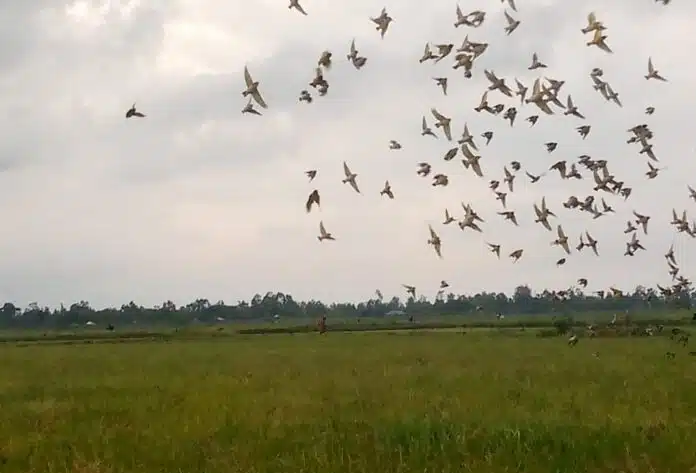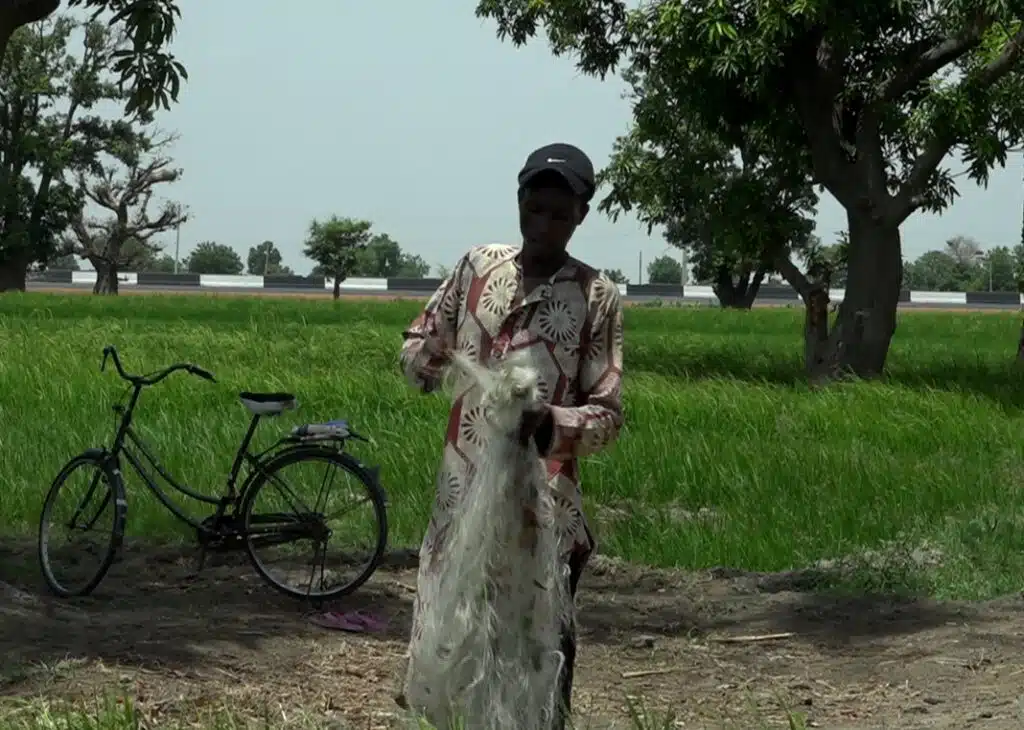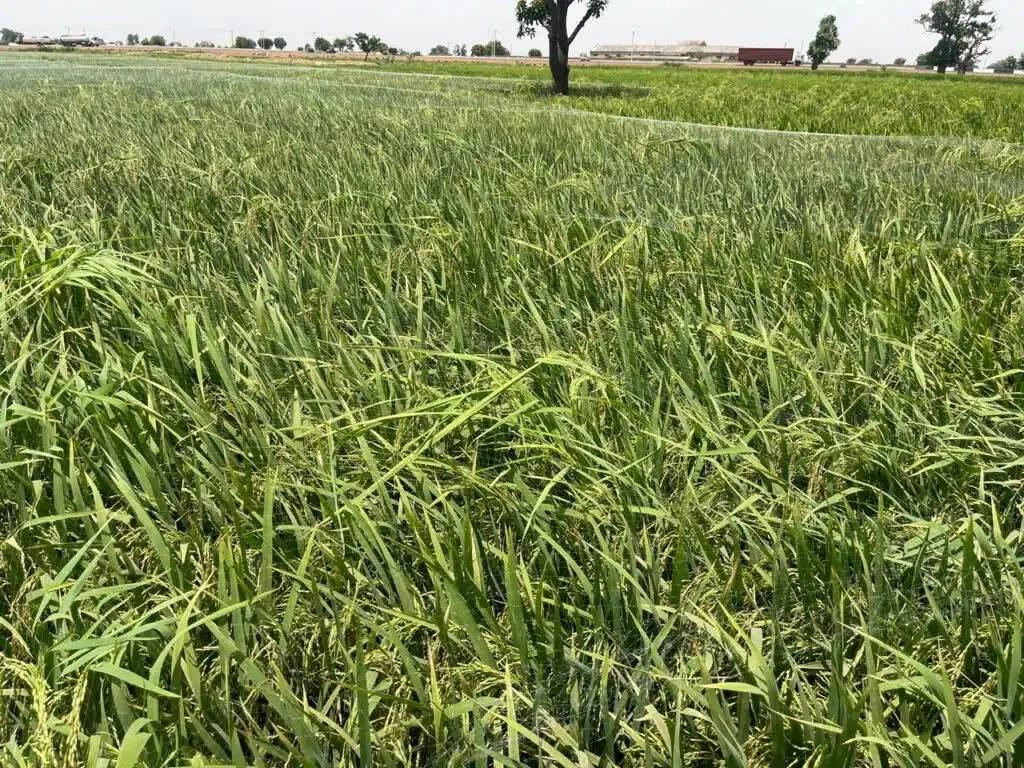As the 2024 rainy season begins in Kano State, Northwest Nigeria, rice farmers are gearing up to start their farming activities, particularly in Kura, a well-known agricultural hub.
Daily News 24 visited the area to observe the preparations.
While many farmers are preparing for the new season, those engaged in dry season farming are just weeks away from harvesting. Their crops, now visible, are attracting birds and insects, eager to feast on the ripening rice.

Ahmad Umar, a local farmer, stands guard over his fields at noon, determined to protect his only source of livelihood. Along with his colleagues, he resorts to covering the crops with fishing nets to prevent the birds from feeding on the yet-to-be-harvested produce.
“We have found ourselves in a difficult situation that has even escalated to something else. If the birds come in their numbers, within a few hours, they will peck at all the rice on the farm,” Ahmad explained. He enlists his siblings to help spread the nets as a protective measure.
This season, the farmers note that the bird population is not as large as in previous years, but they remain vigilant. “The birds are not many this time, but you can see some flying around. If we don’t put the nets, our farms will be in jeopardy,” Ahmad added. “If these birds are not removed, we will have nothing to harvest this season.”

The ongoing bird invasion is causing significant stress among the rice farmers, who fear for their livelihood. They warn that an unchecked bird population could lead to a national shortage of rice.
The farmers call for urgent measures to control the bird population, as conventional scare tactics have proven ineffective. The increase in bird numbers has been attributed to the ideal breeding conditions in Kano State.
One significant handicap in dealing with the invasion is that the state lacks helicopters to spray farms with pesticides. Kano State is part of Nigeria’s northern grain belt, which produces millet, sorghum, rice, and other staples.

In the past decade, annual quelea bird invasions have been reported mostly in the northeastern region bordering Cameroon and Chad.
There are fears that this invasion may further undermine Nigeria’s food security in a year when intense communal clashes in the central agricultural region have disrupted farming activities.
With the rainy season underway, Kano’s rice farmers face a critical challenge in safeguarding their crops from avian threats, exacerbated by the lack of adequate resources to combat the invasion effectively.


